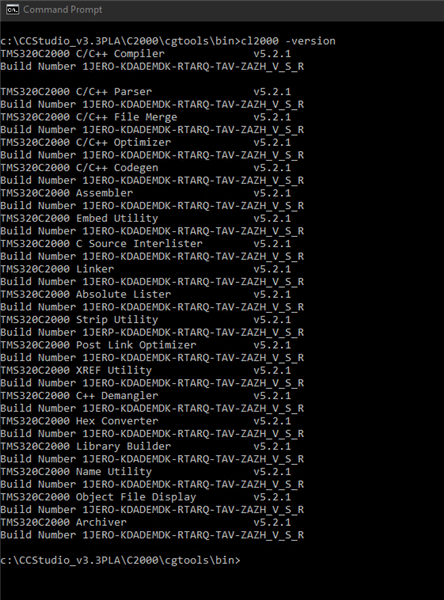Other Parts Discussed in Thread: CCSTUDIO
Hi,
I hope you can help me.
I have to modify program of a TMS320F2812 from an old project. Project was compiled with CCS V3.3 and I use CCS v11.2.0
My problem is that the same code compiled with CCS V11.2.0 is slower than one compiled with CCS v3.3. To test that, I use a script which used the same compiling options but only the compiler cl2000 matches to the desired version.
To test my SW, I enable a GPIO during my algorithm execution which have to be executed every 20µs. With compiler of CCS V3.3, my algorithm is executed in 12µs but with CCS V11.2.0 it executed in 30µs.
I don’t understand why there is this gap : Is there a compiling option I forgotten with CCS v11.2.0 ?
Best regards


